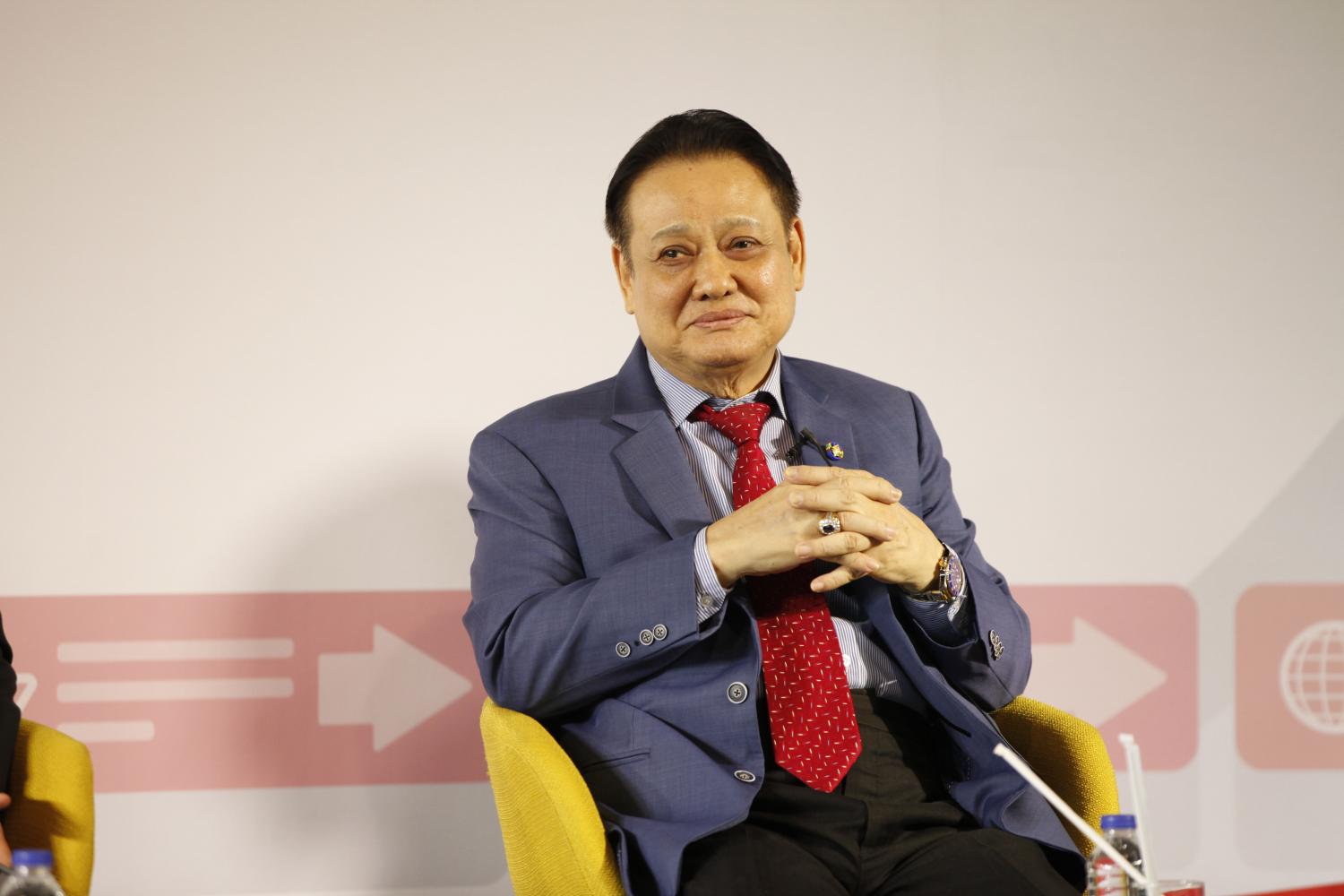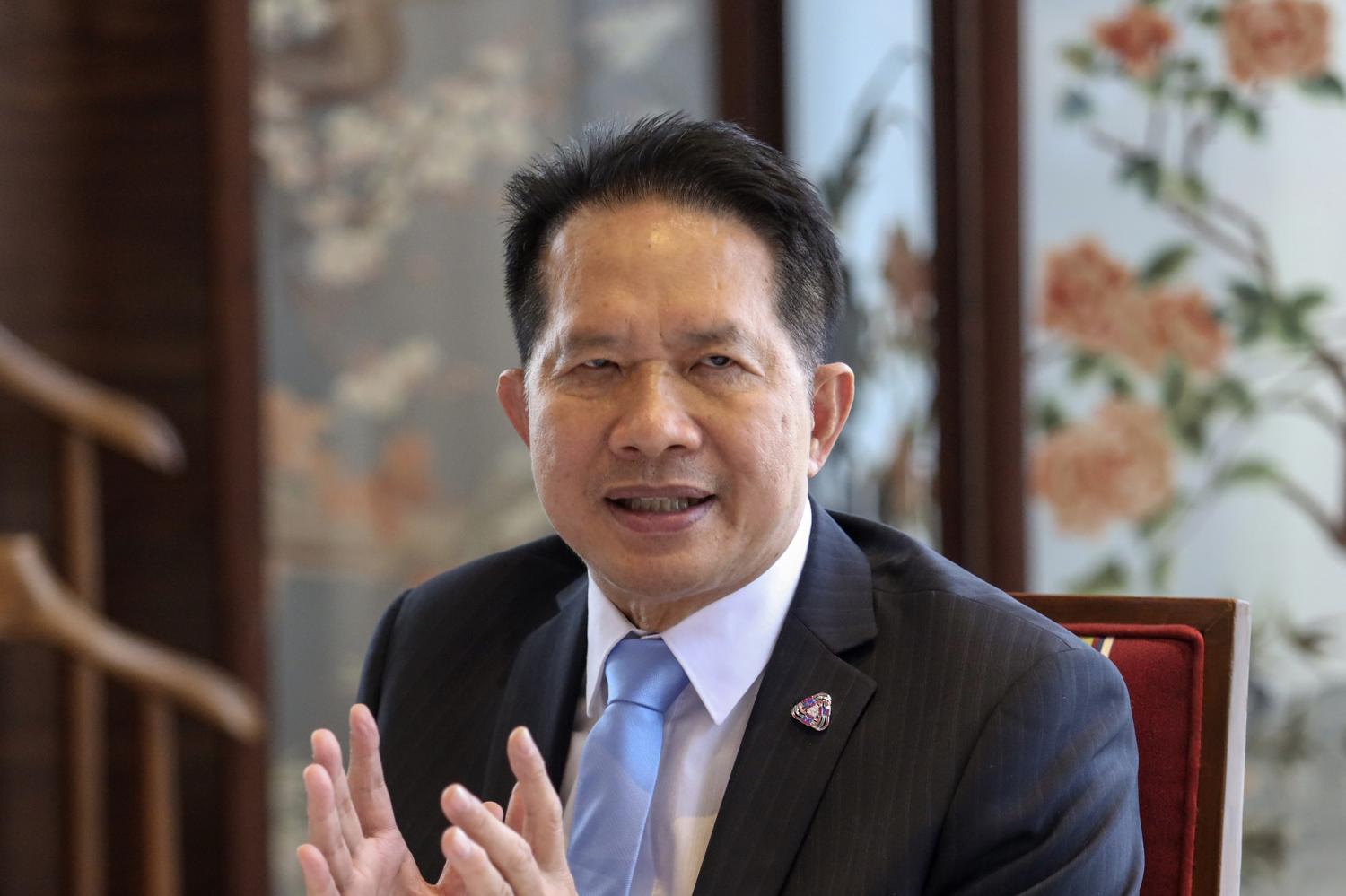
Tanit: Scheme must comply with laws
The workforce is facing a major turning point as Kasikornbank (KBank) introduces a special early retirement (ER) programme at the age of 45, the first of its kind in the country.
Experts say the move reflects both the rapid pace of technological disruption and the growing pressures on employers and employees alike.
Traditionally, retirement in Thailand has been reserved for older workers. The option for those as young as 45 to exit the workforce has sparked widespread debate. Many fear it could set a precedent for other industries, particularly those already undergoing digital transformation.
Tanit Sorat, Vice President of the Employers’ Confederation of Thai Trade and Industry, said large organisations, especially in banking and logistics, have been steadily reshaped by digitalisation.

Tanit: Scheme must comply with laws
“Those who apply for ER programmes in the banking sector often suffer from burnout, while employers may use these schemes as a way to quietly push staff out,” he told the Bangkok Post.
The rise of virtual banking, he added, has also widened generational divides and reduced the need for manpower.
Small and medium-sized enterprises (SMEs), however, face different pressures, he said.
With the US tariff policy expected to weigh heavily on export revenues, particularly in Q4, as many as 4.5 million of Thailand’s 12.9 million SME workers are now directly at risk.
Meanwhile, permanent contracts in the SME sector are increasingly being replaced by temporary employment as firms cut costs and adapt to new technologies.
Mr Tanit said voluntary retirement must comply with labour laws.
Employees should carefully review their social security entitlements, as some benefits that are tied to the minimum age of 55 may be forfeited if they retire too early. Employers, in turn, must ensure adequate compensation and avoid coercion.
Supant Mongkolsuthree, former chairman of the Federation of Thai Industries, told the Bangkok Post the economic downturn in 2025 is unlike past crises, with technology accelerating job displacement.

Supant: Workers need more support
He urged policymakers to revise unemployment benefits further to address rising living costs.
Still, he said many Thai-owned companies give employees reasonable lead time to prepare for departure, rather than proceeding with abrupt dismissals.
“Some financially stable companies offer reskilling in digital skills to help employees delay retirement,” Mr Supant added.
Nonetheless, certain industries, such as craftsmanship, healthcare, and creative fields, will remain resilient, according to him.
“Early retirees may also tap into the digital economy and online platforms or service-based opportunities that offer flexible hours, particularly in caring for Thailand’s growing ageing population,” Mr Supant said.
Chalothorn Kaewkuea, a 55-year-old office worker at a state educational agency, said she was concerned by the change.
She said retirement at 45, even if voluntary, signals deeper instability for white-collar workers whose careers are threatened by economic challenges.
“At 45, most workers are only beginning to build financial security. Many may not be able to find another job, leaving them to rely on limited savings for the rest of their lives. This could become an even greater problem once they reach old age,” she said.
Ms Chalothorn said workers in their mid-40s still have valuable health, skills, and experience that companies could benefit from. She warned that pushing them out too early risks eroding trust in employers and could increase pressure on the Social Security Fund.
Thanes Nunman, a 51-year-old freelance worker, said artificial intelligence (AI) has become a major force reshaping business models, particularly in the banking industry.
“It’s understandable that AI is replacing many tasks, but there are still skills that cannot be replicated by machines,” he said.
“The challenge is to adapt and create synergy between human expertise and AI. In today’s world, there is no longer a safe zone in any career. Workers must be resilient and adaptable to survive.”
Mr Thanes also urged the government to consider introducing legal frameworks regulating AI use to ensure worker protections and benefits.
Niyada Seneemanomai, spokeswoman for the Social Security Office (SSO), said the agency has not yet examined the implications of early retirement at such a young age, saying the concept is new and requires detailed study before assessing its potential impact on the fund.

Niyada: SSO ‘ready’ to assist
However, she said the SSO is prepared to support workers who lose their jobs involuntarily, providing up to 90 days of assistance under existing regulations.
In addition, those who leave the workforce can remain within the social security system by continuing contributions under Articles 39 or 40 if they shift to freelance work, she said.

